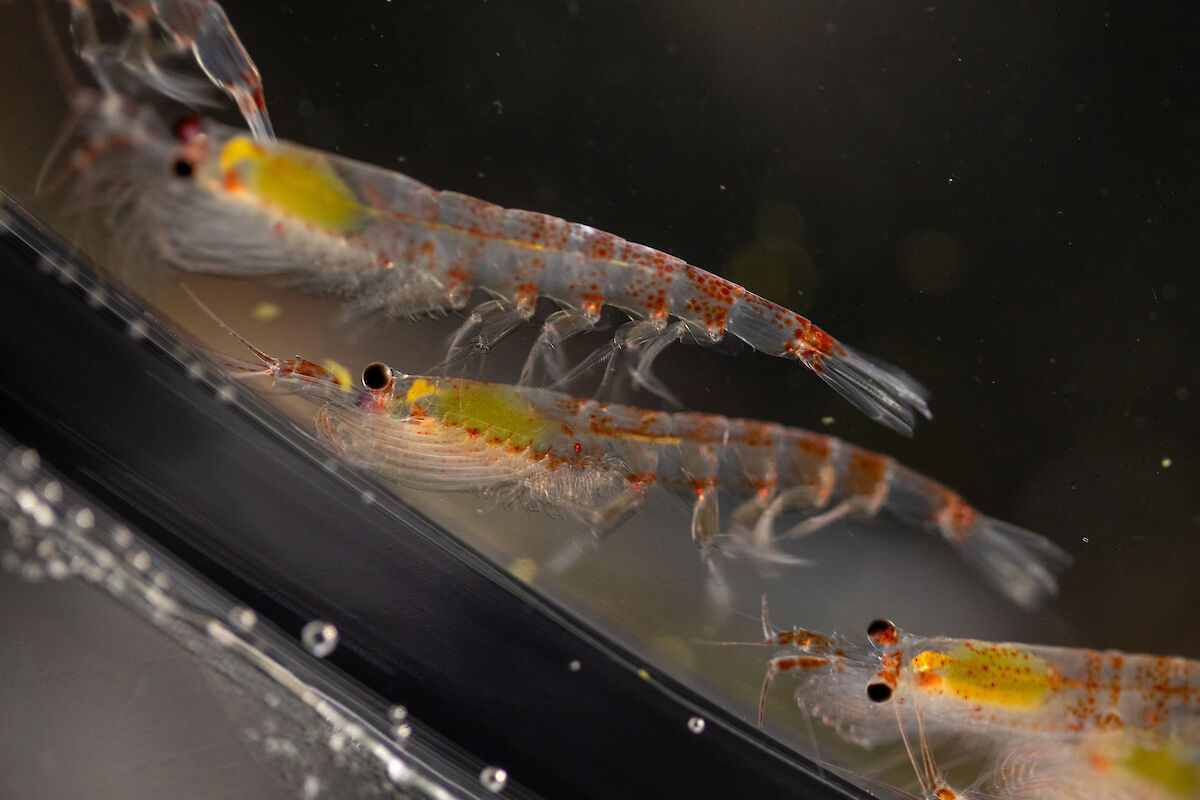The Commission for the Conservation of Antarctic Marine Living Resources (CCAMLR) recently concluded its 43rd annual meeting in Hobart, with no progress on any of the major issues it faced.
Many of the 200 delegates had arrived with a sense of optimism following a “krill harmonisation” symposium, held in Incheon, South Korea, in July 2024. That gathering had left many attendees believing that an understanding had been reached among key countries to align new catch limits for krill with the establishment of a marine protected area (MPA) in the Antarctic Peninsula region. The steps needed to get the MPA agreed at CCAMLR, and setting new catch limits, would go hand-in-hand. Yet, in Hobart, no outcome was reached.
Indeed, the Hobart meeting made no progress on any MPA proposal or on any initiatives to strengthen fisheries management rules. The most significant result of the meeting was, in fact, a step backwards from CCAMLR’s proud and widely recognised precautionary approach to fisheries management.
China and Russia combined to ensure that one key measure that underpins precautionary management of krill fishing would lapse.
How did this happen?
CCAMLR makes its decisions by consensus. It is required to do this using the best scientific information available, and taking a “precautionary approach”. Precaution means that when knowledge is uncertain (say, of fishing impacts), conservative, or even zero, catch limits should be set, while more scientific information is gathered.
China and Russia appear willing to veto proposals they don’t like without engaging in the Antarctic’s well-established and largely successful consensus-building approach.
The CAMLR-Convention requires its Commission to ensure the conservation of all Antarctic marine life in the Convention area. Members manage fishing according to strict environmental principles (Article II), and must also set aside special areas for protection and for science (Article IX 2-g). The “precautionary approach” means CCAMLR can make decisions without waiting for definitive evidence, and thereby avoid causing adverse environmental impacts.
In 2009, CCAMLR committed to establishing an area-wide system of representative marine protected areas. So far, it has designated two. Four proposals, including the Antarctic Peninsula MPA, remain under discussion, despite many compromises to meet the stated concerns of just two opponents (China and Russia).
And, since 1991, krill catches in the Atlantic region (Sub areas 48.1-4 CCAMLR-Convention-Area-Map) have been limited to a precautionary catch of 620,000 tonnes until rules are implemented. The aim being to minimise the impact of krill fishing on krill stocks and on populations of species, such as whales, seals and birds that feed on krill. This Conservation Measure (CM) was augmented in 2009, to distribute the 620,000 tonnes catch across the region to avoid localised ecosystem impacts. The additional measure is referred to as CM 51-07.
In recent years, China has pushed to lift the 620,000 tonne krill catch limit. It has already built two krill fishing vessels equipped with highly efficient continuous fishing technology (similar to that developed by Norway) to underpin its expansion interests.
When negotiations at the annual meeting to simultaneously progress the new catch krill limits with the establishment of the MPA proposal failed, China and Russia blocked the renewal of CM 51-07. This means that all 620,000 tonnes of krill can now be fished in any one location. This significantly improves the ability of krill fishers to increase their individual catches.

Why is this a critical issue?
Many CCAMLR members considered that a rollover of CM 51-07 was the minimum of precaution needed, absent any agreement to a wider package of krill management measures. Its expiration signals a walking away from the precautionary approach – a basic tenet of Antarctic resource management.
This seems a reasonable conclusion. China’s five-year plan includes the expansion of their high-seas fisheries and it is clearly targeting the Southern Ocean as part of that plan. And its many public statements, including at this meeting, calling for a complete overhaul of existing MPA agreements prior to considering any new proposals, reveal no signs of imminent agreement to any new MPAs.
Simultaneously, Russia continues to reject scientific evidence in its efforts to block proposals and it seems comfortable in its “disrupter” role.
China and Russia appear willing to veto proposals they don’t like without engaging in the Antarctic’s well-established and largely successful consensus-building approach – parties working together to find compromises that are mutually acceptable. They have adopted a less-cooperative, more combative style.
The “outcome” of the Hobart meeting requires immediate and firm responses from CCAMLR members. The members need to renew their commitment to maintaining the underlying principles upon which CCAMLR was founded – managing the impact of human activities based on collaboration and cooperation, using the best scientific information available and acting on the basis of precaution.
CCAMLR members need to generate a determined and focused response that calls out China’s and Russia’s actions and demands that they and all parties work cooperatively towards sustainable conservation and precautionary fisheries management goals. No new fisheries should be approved until cooperation and collaboration is restored. This includes any expansion of the krill fishery in any part of the Antarctic beyond existing caps.
Ultimately, if China and Russia cannot engage with CCAMLR according to well-established norms and practices, it raises the question of whether they are in fact committed to Convention’s objectives, and it will be necessary to challenge the approach they are taking at the Commission.

